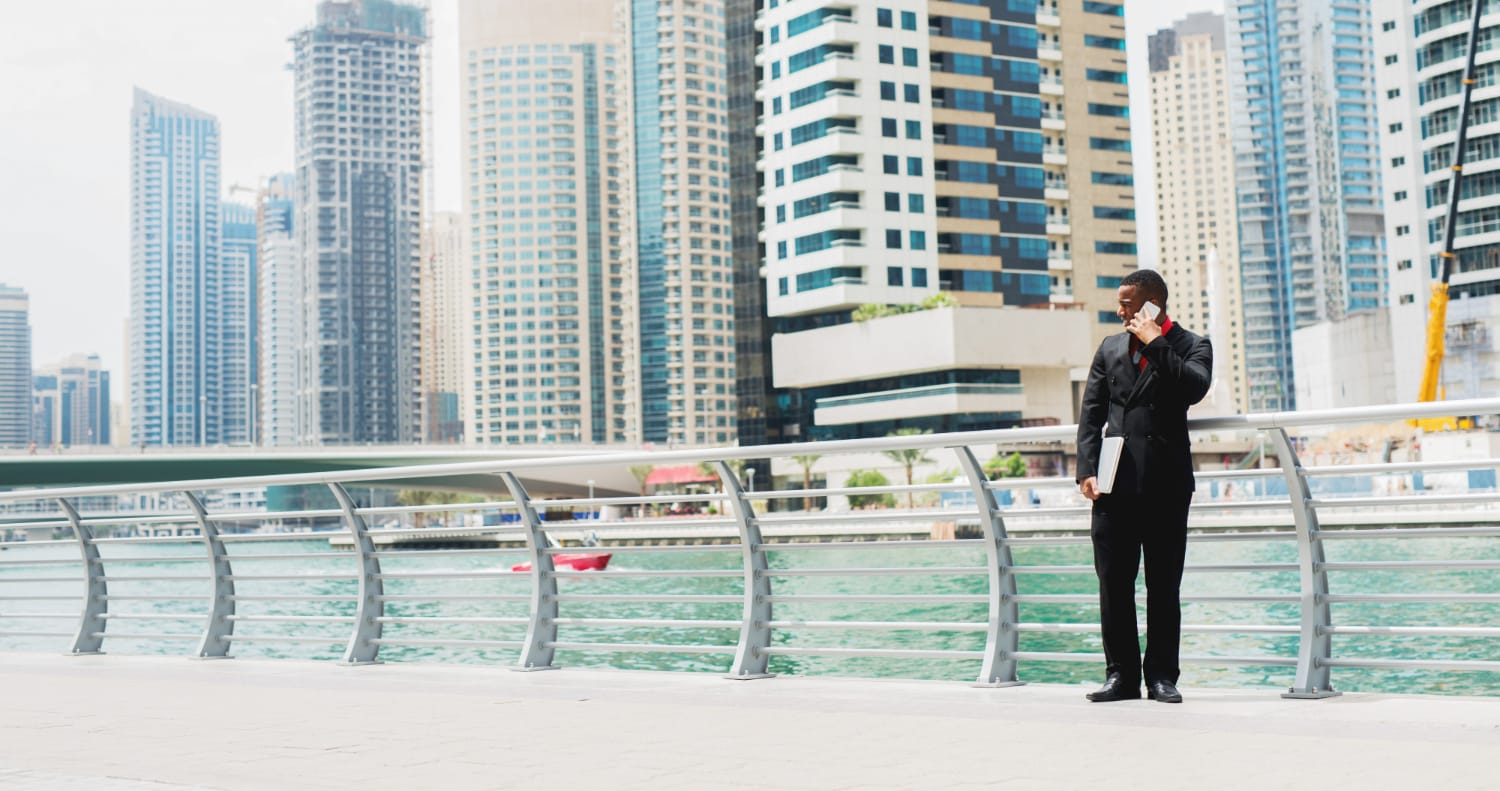Dubai’s real estate market is a thriving and dynamic sector, attracting investors from around the globe. With its futuristic skyline, luxurious lifestyle, and strategic economic positioning, Dubai offers an array of lucrative property investment opportunities. However, choosing the right property developer is crucial to ensuring the success of your investment. This comprehensive guide will walk you through the essential steps and considerations for selecting the right property developer in Dubai.
1. Research the Developer’s Reputation
The first step in choosing a property developer is to research their reputation. A developer’s track record can provide insights into their reliability, quality of work, and customer satisfaction. Here’s how you can evaluate a developer’s reputation:
-
Online Reviews and Ratings: Check online platforms like Google Reviews, Trustpilot, and real estate forums for feedback from previous buyers. Pay attention to both positive and negative reviews to get a balanced perspective.
-
Industry Awards and Recognitions: Developers who have received industry awards or recognition are often reliable. Look for accolades from reputable organizations in the real estate industry.
-
Word of Mouth: Speak to current property owners and real estate professionals in Dubai. Personal recommendations can be invaluable in assessing a developer’s reputation.
2. Verify Legal Standing and Certifications
Ensure that the developer is legally compliant and holds the necessary certifications. This step is crucial for avoiding legal complications and ensuring the security of your investment. Here’s what to look for:
-
Registration with RERA: The Real Estate Regulatory Authority (RERA) in Dubai regulates the real estate market. Verify that the developer is registered with RERA, which ensures adherence to legal and industry standards.
-
ISO Certification: International Organization for Standardization (ISO) certifications indicate a commitment to quality and safety standards. Check if the developer holds any relevant ISO certifications.
3. Examine Past Projects
Reviewing a developer’s past projects can provide insights into their design aesthetics, build quality, and adherence to timelines. Here’s how to evaluate past projects:
-
Project Portfolio: Visit the developer’s website or request a portfolio of their completed projects. Look for diversity in project types and consistency in quality.
-
Site Visits: If possible, visit completed projects in person. This allows you to assess the construction quality, finishing, and overall environment.
-
Project Timelines: Check if the developer has a history of completing projects on time. Delays can be costly and indicate potential management issues.
4. Financial Stability of the Developer
A developer’s financial stability is crucial for ensuring that projects are completed on time and to the expected standard. Here’s how to assess financial stability:
-
Financial Reports: Review the developer’s financial statements and annual reports. These documents provide insights into the company’s profitability, liabilities, and overall financial health.
-
Credit Ratings: Check if the developer has been rated by credit rating agencies. High ratings indicate financial stability and reliability.
-
Investor Relations: Engage with the developer’s investor relations team to understand their funding sources and financial planning for upcoming projects.
5. Transparency in Transactions
Transparency is essential in any real estate transaction. A trustworthy developer should provide clear and comprehensive information about the project and the transaction process. Here’s what to consider:
-
Detailed Contracts: Ensure that the sales agreement and other contracts are detailed and clear. They should outline all terms, conditions, and financial obligations.
-
Regular Updates: The developer should provide regular updates on the progress of the project. This includes construction milestones, potential delays, and any changes to the project plan.
-
Open Communication: The developer should be open to addressing your queries and concerns. Clear and prompt communication is a sign of professionalism and reliability.
6. Customer Service and After-Sales Support
The quality of customer service and after-sales support can significantly impact your experience as a property owner. Evaluate the developer’s customer service standards through the following:
-
Customer Testimonials: Look for testimonials from previous buyers. Positive experiences in customer service and after-sales support are good indicators of a reliable developer.
-
Dedicated Support Team: Ensure that the developer has a dedicated customer service team to handle inquiries, complaints, and maintenance requests.
-
Warranty and Maintenance: Check if the developer offers warranties on construction and finishing. Also, inquire about the availability of maintenance services post-handover.
7. Sustainability and Innovation
In today’s market, sustainability and innovation are key considerations. Developers who prioritize these aspects are likely to offer better value and appeal to a broader range of buyers. Here’s what to look for:
-
Green Building Certifications: Check if the developer’s projects have green building certifications, such as LEED (Leadership in Energy and Environmental Design). These certifications indicate a commitment to environmental sustainability.
-
Innovative Technologies: Evaluate the use of innovative construction technologies and smart home features in the developer’s projects. These can enhance the living experience and future-proof your investment.
-
Sustainable Practices: Investigate the developer’s commitment to sustainable practices, such as energy-efficient designs, water conservation, and waste management.
8. Pricing and Payment Plans
Pricing and payment plans are crucial factors in your investment decision. A reputable developer will offer competitive pricing and flexible payment options. Here’s how to assess these aspects:
-
Comparative Pricing: Compare the pricing of the developer’s projects with similar properties in the same location. Ensure that you are getting value for money.
-
Payment Flexibility: Check if the developer offers flexible payment plans, such as installment options or post-handover payment plans. This can ease the financial burden and make the investment more manageable.
-
Hidden Costs: Be aware of any additional costs, such as service charges, maintenance fees, and utility connection fees. Ensure that these are transparently communicated.
9. Future Development Plans
Understanding the developer’s future plans can provide insights into their long-term vision and potential impact on your investment. Here’s what to consider:
-
Upcoming Projects: Inquire about the developer’s pipeline of upcoming projects. Continuous development indicates growth and stability.
-
Master Plans: Review the master plans for the areas where the developer’s projects are located. Future infrastructure and amenities can enhance property values.
-
Market Trends: Stay informed about market trends and how the developer plans to adapt to changes in the real estate landscape.
10. Legal and Regulatory Compliance
Ensure that the developer complies with all legal and regulatory requirements. This is crucial for the legitimacy and security of your investment. Here’s how to verify compliance:
-
RERA Compliance: Verify that the developer’s projects are registered with RERA and that they adhere to RERA’s regulations and guidelines.
-
Title Deeds: Ensure that the developer provides clear and legal title deeds upon project completion. This is essential for establishing ownership.
-
Building Permits: Check that the developer has obtained all necessary building permits and approvals from relevant authorities.
Conclusion
Choosing the right property developer in Dubai is a critical step in securing a successful real estate investment. By conducting thorough research, verifying legal standing, examining past projects, and evaluating financial stability, you can make an informed decision. Additionally, consider factors such as transparency, customer service, sustainability, pricing, and future development plans. By taking these steps, you can confidently select a developer who aligns with your investment goals and ensures a rewarding experience in Dubai’s vibrant real estate market.
Investing in Dubai’s property market offers immense potential, and selecting the right developer is your gateway to realizing that potential. Whether you are looking for a residential property, a commercial investment, or a mixed-use development, a reputable and reliable developer will be your partner in achieving your real estate aspirations. Remember, a well-informed choice today will lead to a prosperous and secure investment tomorrow.




